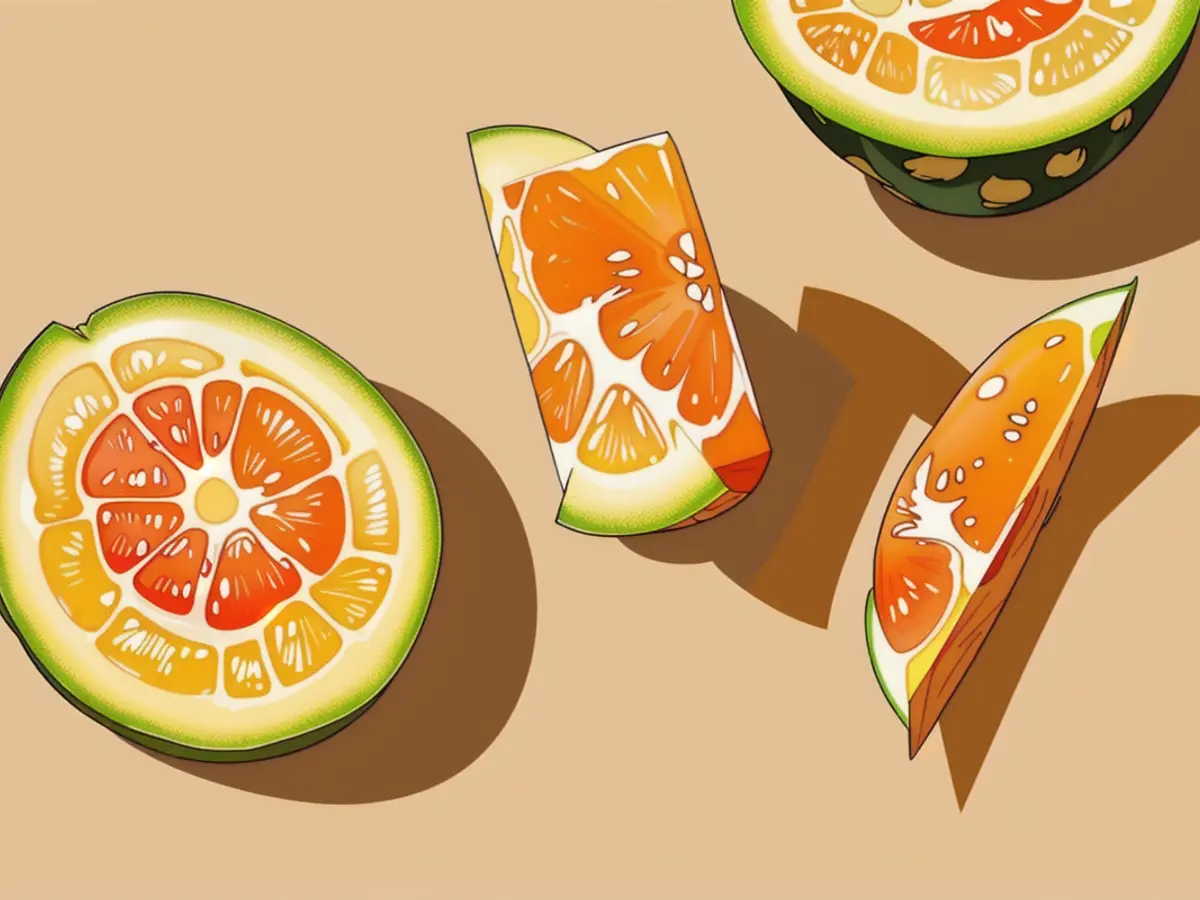Foods That Potentially Aggravate Your Seasonal Allergy Symptoms
Hey there, spring ain't just blooming flowers and sunshine for some folks! For allergy sufferers, it's a season of sneezes, itchy eyes, and general misery. While you might think those symptoms come from pollen in the air, there's another culprit lurking: your pantry.
You guessed it! Food can make your allergy woes worse. Here's a lowdown on some common offenders:
Tree Nuts – A Toxic Relationship?
Tree nut allergies are a thing, but did you know that your seasonal allergies could make you more sensitive to certain nuts? That's because the proteins in nuts like hazelnuts and almonds can look mighty familiar to your body if it's already allergic to birch tree pollen, triggering cross-reactivity.
Home Habits That Hurt
Chamomile: Calm One Day, Itchy the Next
Chamomile is well-known for its calming properties. But for those with a history of severe pollen allergies, it can cause some not-so-chill reactions, thanks to proteins that may cross-react with birch pollen. Even high-quality chamomile products, labeled as "pure," might contain pollen, upping the risk of an allergic reaction. So if you're prone to allergies, speaking with a healthcare professional before sipping some chamomile tea, popping supplements, or using essential oils is a smart move.
Fruits and Vegetables: A case of Pollen-Food Allergy Syndrome
If you're allergic to ragweed, grass, or birch pollen, you might find certain fruits and veggies giving you a hard time, too. This fun little phenomenon is called Oral Allergy Syndrome (OAS), where your immune system gets confusing and mistakes proteins in raw fruits and veggies for proteins in pollen. The result? Mild to severe allergic reactions. During peak pollen season, your sensitivity may increase as your immune system is already wound up.
- Ragweed pollen: Bananas, cucumbers, watermelon, honeydew, cantaloupe, and zucchini
- Grass pollen: Tomatoes, cantalook, watermelon, honeydew, and oranges
- Birch tree pollen: Peaches, pears, apples, plums, carrots, celery, kiwi, apricots, and cherries
Cooking or peeling these fruits and veggies might help reduce your chances of reactions, as the proteins causing OAS can break down with heat or be removed with the skin.
Spicy Food, Spicy Nose
Saucy foods can't clear all your symptoms – they can irritate your body and worsen your allergy woes, especially if you're sensitive to histamines. Spicy peppers, like jalapeños, habaneros, and chili peppers, contain capsaicin, a compound that revs up histamine production, potentially adding fuel to the fire of your symptoms.
If you're histamine-sensitive, toning it down on spicy eats during allergy season might help.
Alcohol: Booze and Allergies Don't Mix
Many alcoholic beverages, including beer, red wine, and champagne, are swimmin' with high levels of histamines, a compound that can trigger allergic reactions. Drinking alcohol may also inhibit the production of diamine oxidase (DAO), an enzyme that breaks down histamines, leading to symptoms like nasal congestion, headaches, and skin rashes. Sulfites, an additive in many wines, can also cause allergic reactions.
If you're histamine-sensitive, opting for lower-histamine drinks, like white wine or clear spirits, and avoiding beverages with sulfites can help manage your symptoms.
Dairy: A Mixed Signal
The relationship between dairy products and allergy symptoms is a complex dance. Genetic testing points to dairy being protective for seasonal allergy sufferers, but observational studies show a higher risk of hay fever in those who drink milk. Some dairy-rich foods like yogurt and aged cheese might contain histamines, which can potentially trigger allergic reactions.
If dairy worsens your allergy symptoms, consider switching to dairy alternatives, like oat milk or other plant-based options, during allergy season.
[1] Hirschwehr R, Valenta R, Ebner C, et al. Identification of common allergenic structures in hazel pollen and hazelnuts: A possible explanation for sensitivity to hazelnuts in patients allergic to tree pollen. Journal of Allergy and Clinical Immunology, 1992.[2] Subiza J, Subiza JL, Hinojosa M, et al. Anaphylactic reaction after the ingestion of chamomile tea: a study of cross-reactivity with other composite pollens. J Allergy Clin Immunol, 1989.[3] Skaaby T, Kilpeläinen TO, Taylor AE, et al. Association of alcohol consumption with allergic disease and asthma: a multicenter Mendelian Randomization analysis. Addiction (Abingdon, England), 2018.[4] Zimatkin SM, Anichtchik OV. Alcohol-histamine interactions. Alcohol Alcohol, 1999.[5] Skaaby T, Kilpeläinen TO, Mahendran Y, et al. Association of milk intake with hay fever, asthma, and lung function: a Mendelian Randomization analysis. European journal of epidemiology, 2022.
- To manage your allergy symptoms during spring, it's important to consider the role of nutrition in exacerbating your condition.
- Tree nut allergies can be exacerbated by cross-reactivity with birch tree pollen, making you sensitive to nuts like hazelnuts and almonds.
- Chamomile, known for its calming properties, can cause reactions for those with severe pollen allergies due to proteins that may cross-react with birch pollen.
- Oral Allergy Syndrome (OAS) is a common issue where your immune system mistakes proteins in raw fruits and veggies for proteins in pollen, leading to allergic reactions.
- Certain fruits and vegetables like bananas, cucumbers, watermelon, and apples can cause allergic reactions during peak pollen season due to OAS.
- Spicy foods contain capsaicin, a compound that increases histamine production, potentially worsening your allergy symptoms.
- Alcoholic beverages like beer, red wine, and champagne can trigger allergic reactions due to high levels of histamines and sulfites, so opting for lower-histamine drinks or alternatives may help manage symptoms.






